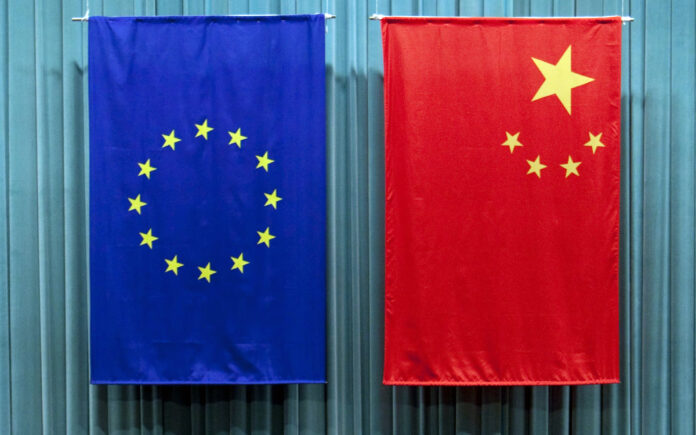Brussels: European companies are cautiously reassessing their involvement in China’s Belt and Road Initiative (BRI) as they grapple with a landscape fraught with challenges. Despite recognizing the potential for collaboration, particularly in infrastructure development, navigating geopolitical complexities and varying standards poses significant hurdles for these entities.
Take, for instance, Duisport, a German multinational that sees promise in BRI-aligned projects, investing a substantial US$30 million in a cross-border railway hub in Chongqing. This investment underscores Germany’s interest in ventures tied to the BRI. However, reports indicate that foreign firms like Duisport encounter obstacles stemming from geopolitical tensions and discrepancies in project execution standards.
Also Read | Medvedev Warns of Nuclear Retaliation Against NATO Troop Deployment in Ukraine
Tensions between China and developed nations, notably the US and certain European countries, have cast a shadow over participation in BRI initiatives. Concerns regarding environmental practices, labor conditions, and debt sustainability further complicate matters. German multinationals, while keen on collaborating with Chinese counterparts, face hurdles due to conflicting approaches and standards. China’s emphasis on self-reliance clashes with European companies’ advocacy for adherence to international norms.
Also Read | EU Split Over Putin’s Fifth Term Inauguration: Diplomatic Tensions Rise
China’s recent pivot towards smaller-scale, domestically-focused projects represents a departure from its earlier emphasis on grand infrastructure endeavors with foreign partners. This shift reflects China’s renewed focus on internal economic priorities and a decreased appetite for extensive international cooperation.
While European countries like France, the UK, and the Netherlands have engaged in BRI-related projects previously, evolving political dynamics have tempered enthusiasm. Concerns about compliance with OECD guidelines for responsible business conduct and the potential for estrangement from fellow developed nations contribute to a sense of caution.
Also Read | Russia Blocks UN Resolution on Space Nuclear Weapons Ban, Proposes Ban on All Celestial Weaponry
Despite these challenges, some European companies discreetly contribute technical expertise to Chinese initiatives without overtly aligning themselves with the BRI. For instance, Swiss company Nexxiot collaborates with Chinese partners to digitize transportation assets, leveraging China’s manufacturing capabilities.
In essence, while European companies maintain an interest in BRI-related opportunities, the path forward is fraught with complexities. Navigating geopolitical tensions and differing standards necessitates careful consideration and strategic decision-making.



